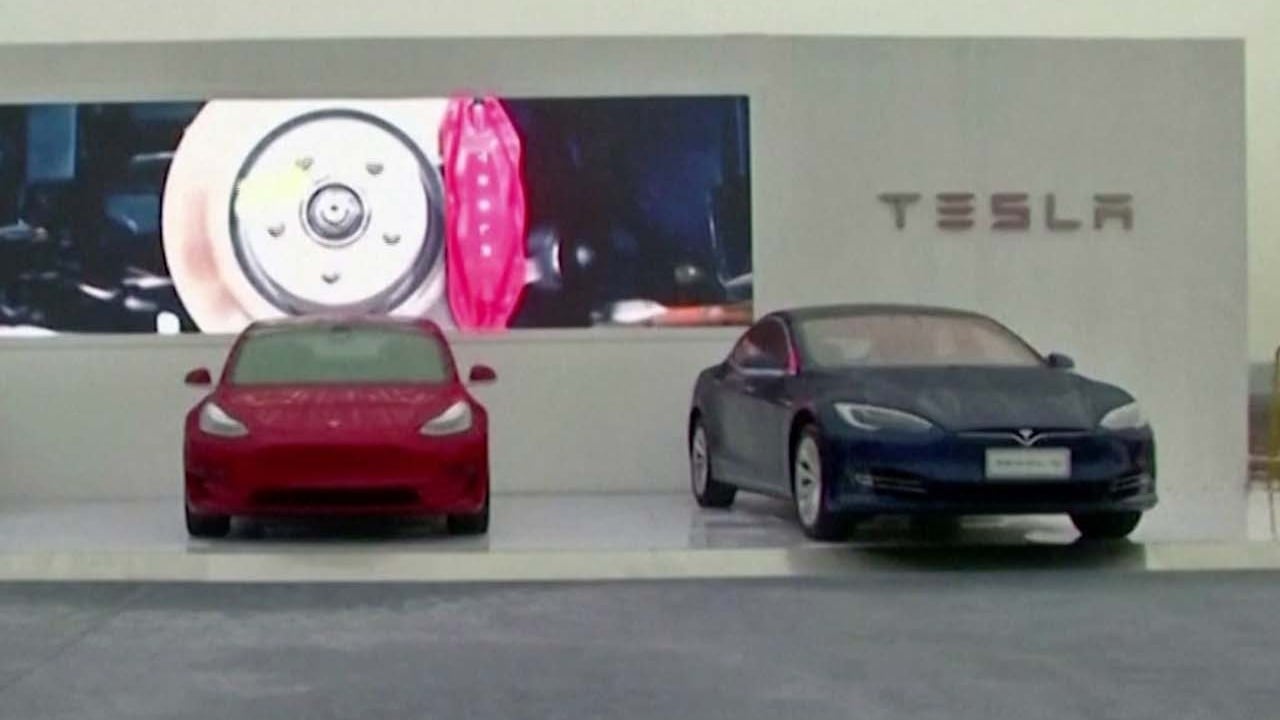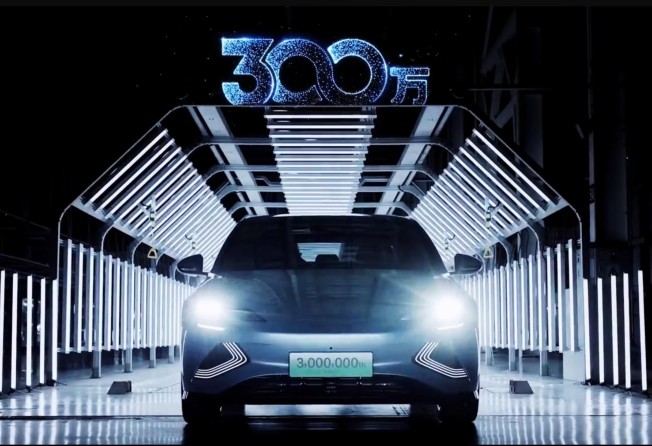
02:01
Tesla owners in China protest against price cuts as consumers tighten budgets

Chinese electric-vehicle (EV) start-up WM Motor edged closer to a back-door listing in Hong Kong after Apollo Future Mobility announced a plan to merge with the embattled company, which was once viewed as a potential rival to Tesla in the world’s largest EV market.
Hong Kong-listed Apollo said in an exchange filing on Thursday that one of its units plans to acquire the Shanghai-based EV maker for US$2.02 billion in a reverse-merger deal.
As part of the move, Apollo plans to raise HK$3.92 billion (US$501.8 million) by floating 7.1 billion additional shares at 55 HK cents apiece to boost cash flow and supplement working capital.
The deal is subject to a “wide range of factors” including regulatory approvals, the filing said. Apollo is involved in EV engineering and tech services but does not make cars.
Going public through a reverse-merger transaction, also known as back-door listing, would effectively bail out financially troubled WM, which has been pursuing a listing since it submitted an initial public offering (IPO) application to the Hong Kong stock exchange on June 1 last year.
“Gaining access to fresh capital is vitally important for WM since it may be liquidated due to the financial squeeze,” said Ivan Li, a fund manager at Loyal Wealth Management in Shanghai.
The rescue could signal a wave of consolidation amid fierce competition in a sector that encompasses around 200 EV companies.
“Some other [mainland] EV start-ups will be desperate to raise funds soon,” Li said.
Under a reverse merger, a private firm, after merging with a listed company, becomes public as its core assets are injected into the listing vehicle. Such deals normally involve new share issuance to raise fresh funds.
Founded in 2015 by Freeman Shen Hui, a former CEO of Zhejiang Geely Holding Group, WM grappled with severe financial problems in the second half of 2022.
WM cut staff salaries by up to 50 per cent in October amid weak sales and widening losses, Shanghai-based financial media outlet Jiemian reported. The company was also forced to close showrooms to reduce costs. In Shanghai, for example, the brand closed about half its locations.
The carmaker sold about 32,300 electric cars in the first 11 months of 2022, down 10.3 per cent on year despite a 96 per cent surge in total EV sales in mainland China last year.
In 2021, WM lost 1.95 billion yuan (US$289 million), 68 per cent more than in the previous year.
WM’s delivery volume represents just a third of its Chinese rivals – Nio, Xpeng and Li Auto – the trio that is now competing against Tesla in the premium EV segment. Meanwhile all of the EV brands are facing a surging BYD, which surpassed Tesla in EV sales in 2022.

Demand for premium electric cars in China is declining as lay-offs in the technology industry and the pandemic-ravaged economy are pushing buyers towards cheaper, locally made electric cars, instead of imported models or foreign brands like Tesla.
Tesla has slashed prices on its Shanghai-made Model 3 and Model Y vehicles twice in three months to lure customers back to its showrooms. The basic edition of the Model 3 now costs 229,900 yuan – an 18 per cent cut following the two rounds of price cuts.